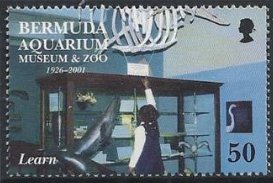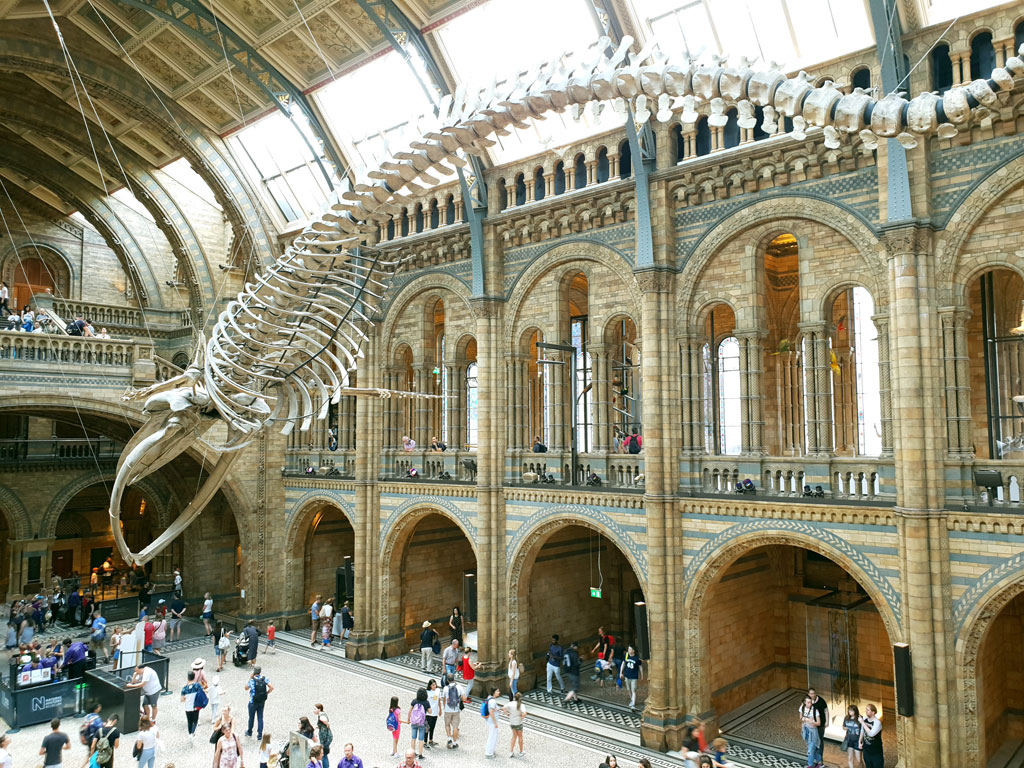Stamp: Child, museum display (Bermuda 2001)
Child, museum display (Bermuda 2001)
09 August (Bermuda ) within release Aquarium, Museum and Zoo, 75th Anniv. goes into circulation Stamp Child, museum display face value 50 Bermudian cent
| Stamp Child, museum display in catalogues | |
|---|---|
| Stamp Number: | Sn:BM 813 |
Stamp is square format.
Watermark 373Also in the issue Aquarium, Museum and Zoo, 75th Anniv.:
- Stamp - Child, sea urchins, starfish face value 35;
- Stamp - Child, museum display face value 50;
- Stamp - Child, tortoise face value 55;
- Stamp - Aquarium face value 70;
- Stamp - Diver in aquarium tank face value 80;
- Stamp - Turtle face value 95;
|
Data entry completed
50%
|
|
|---|---|
| Stamp Child, museum display in digits | |
| Country: | Bermuda |
| Date: | 2001-08-09 |
| Emission: | Commemorative |
| Format: | Stamp |
| Face Value: | 50 Bermudian cent |
Stamp Child, museum display it reflects the thematic directions:
Tourism is travel for pleasure or business; also the theory and practice of touring, the business of attracting, accommodating, and entertaining tourists, and the business of operating tours. Tourism may be international, or within the traveller's country. The World Tourism Organization defines tourism more generally, in terms which go "beyond the common perception of tourism as being limited to holiday activity only", as people "traveling to and staying in places outside their usual environment for not more than one consecutive year for leisure, business and other purposes". Tourism can be domestic or international, and international tourism has both incoming and outgoing implications on a country's balance of payments. Today, tourism is a major source of income for many countries, and affects the economy of both the source and host countries, in some cases being of vital importance.
A museum (/mjuːˈziːəm/ mew-ZEE-əm) is an institution dedicated to displaying and/or preserving culturally or scientifically significant objects. Many museums have exhibitions of these objects on public display, and some have private collections that are used by researchers and specialists. Compared to a library, a museum hosts a much wider range of objects and usually focus around a specific theme such as the arts, science, natural history, local history, and other topics. Public museums that host exhibitions and interactive demonstrations are often considered to be tourist attractions, and many museums attract large numbers of visitors from outside their host country, with the most visited museums in the world regularly attracting millions of visitors annually.
Animals are multicellular, eukaryotic organisms of the kingdom Animalia (also called Metazoa). All animals are motile, meaning they can move spontaneously and independently, at some point in their lives. Their body plan eventually becomes fixed as they develop, although some undergo a process of metamorphosis later on in their lives. All animals are heterotrophs: they must ingest other organisms or their products for sustenance.



